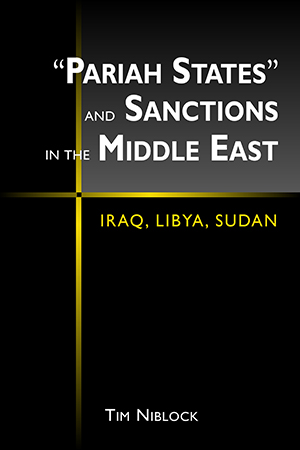
- 2001/241 pages
- The Middle East in the International System
"Pariah States" and Sanctions in the Middle East:
Iraq, Libya, Sudan
Hardcover: $55.00
ISBN: 978-1-55587-962-4
Paperback: $25.00
ISBN: 978-1-58826-107-6
Now Available in Paperback!
UN sanctions have become an increasingly popular weapon in the political armory of the international community—a supposedly effective means, short of war, of bringing a transgressor state- back in line. Tim Niblock challenges this view in a dispassionate analysis of the political, economic, and psychological impact of sanctions on the Middle East's "pariah" states.Niblock establishes two criteria for assessing the utility of sanctions: Have they forced the countries concerned to stay within the framework of international law? How have they affected the development of those countries? He finds that, while sanctions have contained Iraq, Libya, and Sudan in the short term, they have if anything strengthened the three regimes at home and at the same time increased social divisions and religious militancy. Contrary to intentions, he cogently argues, the net effect has been damage to the long-term prospects for stability and good governance in the Middle East and for a secure international order.





